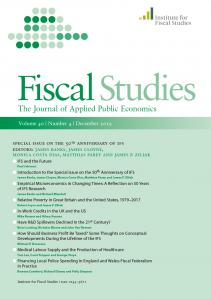Event
5 November 2019 at 10:00
<p>Tothill Street, London, SW1H 9NQ</p>
At this event, speakers will set out what we know, and what we need to know, about the very rich in the UK. Using a mixture of data from household surveys and data from tax authorities, the speakers will look at trends in the share of national income that goes to very high earners, the characteristics of those at the top of the income distribution, the importance of income from capital gains, and what we know about wealth inequality.








































